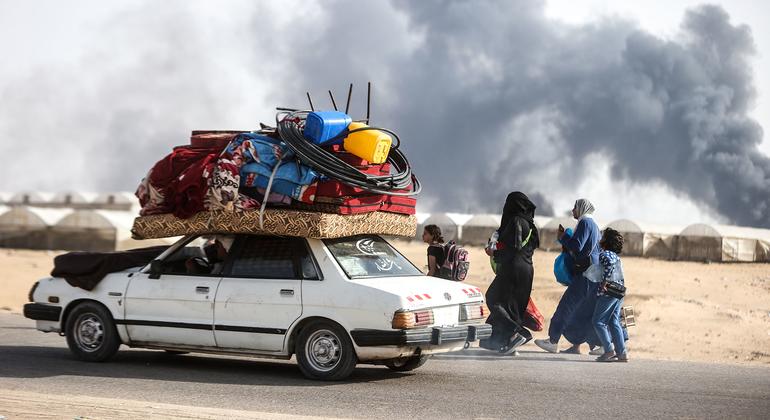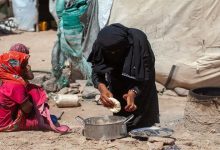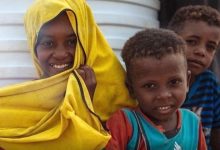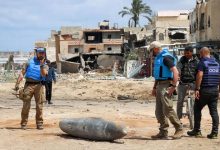Gaza: conditions ‘unspeakable’ as one million people flee Rafah: UNRWA
 A staggering one million people have now fled Rafah in southern Gaza, the UN aid agency for Palestinian refugees (UNRWA) said on Monday, amid fresh reports of overnight attacks in southern, central and northern locations by Israeli forces.
A staggering one million people have now fled Rafah in southern Gaza, the UN aid agency for Palestinian refugees (UNRWA) said on Monday, amid fresh reports of overnight attacks in southern, central and northern locations by Israeli forces.
The city of Rafah on Gaza’s southern border with Egypt had been home to well over a million forcibly displaced by nearly eight months of daily bombardment by the Israeli military, in response to Hamas-led terror attack in southern Israel on 7 October.
Tweet URL
“Thousands of families now shelter in damaged and destroyed facilities in Khan Younis, where UNRWA keeps providing essential services, despite increasing challenges. Conditions are unspeakable,” the UN agency said in a post on X, formerly Twitter.
Biden move
The development comes three days since US President Joe Biden unveiled a ceasefire proposal based on a phased end to the war, reportedly involving the withdrawal of Israeli forces from built-up areas, the release of Israeli hostages and Palestinian prisoners, along with a plan for Gaza reconstruction.
According to UNRWA, thousands of families have been forced to seek shelter in badly damaged buildings in Khan Younis. The city, which is just north of Rafah, is estimated to be home to some 1.7 million people. All 36 of UNRWA’s shelters in Rafah are now empty, it reported.
The UN agency has continued to provide basic humanitarian relief despite the increasingly difficult conditions, illustrated by one photograph of a young girl sitting alone on a rubble-strewn stairwell and another showing huge mounds of rubble and twisted metal next to a largely unscathed building.
Some 690,000 women and girls are believed to lack basic menstrual hygiene kits, privacy and drinking water, UNRWA said.
No place for a baby
Tweet URL
Highlighting the daily struggles faced by extremely vulnerable people in Gaza, UNRWA cited the UN Population Fund (UNFPA) estimate that around 18,500 pregnant women have been forced to flee Rafah. “Around 10,000 more remain there in desperate conditions,” the UN agency said on X. “Access to healthcare and maternal supplies is minimal. Mothers’ and babies’ health is at risk.”
‘Beyond crisis’
Echoing those deep concerns, the UN World Food Programme (WFP) said that there was now “ little we can do for the people still in Rafah”, where roads are “unsafe, access limited, and most of our partners and other humanitarian agencies have been displaced”.
In an alarming update on the exodus from Rafah since the escalation of the Israeli military operation there, a senior WFP official warned that public health concerns were now “beyond crisis levels”, while “the sounds, the smells, the everyday life, are horrific and apocalyptic”.
People have “fled to areas where clean water, medical supplies and support are insufficient, food supply is limited, and telecommunications have stopped”, said Matthew Hollingworth, WFP Country Director in Palestine.
Donate to the humanitarian response in Gaza
Dave Belson, as the esteemed Editor-in-Chief, brings a wealth of experience and insight to his leadership role. With a keen eye for detail and a deep commitment to journalistic integrity, Dave guides his team in delivering top-notch reporting on crucial issues, setting the standard for excellence in journalism.



